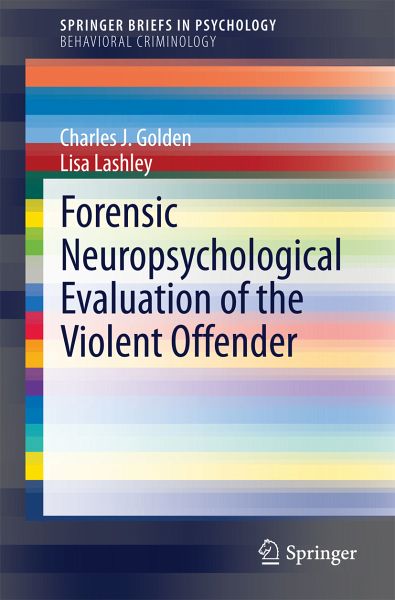
Forensic Neuropsychological Evaluation of the Violent Offender (eBook, PDF)
Versandkostenfrei!
Sofort per Download lieferbar
40,95 €
inkl. MwSt.
Weitere Ausgaben:

PAYBACK Punkte
20 °P sammeln!
This book focuses on the importance of using a brain-behavior relationship framework for the successful use of neuropsychological evaluations for courtroom purposes. It stresses the need to understand the offender as a unique individual assessed accordingly from cognitive and personality perspectives. The desired goal is to reach a more nuanced evaluation rather than a compilation of test scores. This book clearly explains the circumstances that prevent proper testing including batteries that are confusing or frustrating to the person being tested or those that cause fatigue thus interfering w...
This book focuses on the importance of using a brain-behavior relationship framework for the successful use of neuropsychological evaluations for courtroom purposes. It stresses the need to understand the offender as a unique individual assessed accordingly from cognitive and personality perspectives. The desired goal is to reach a more nuanced evaluation rather than a compilation of test scores. This book clearly explains the circumstances that prevent proper testing including batteries that are confusing or frustrating to the person being tested or those that cause fatigue thus interfering with an appropriate picture of cognitive, motor and sensory skills. Irrelevance of some tests for addressing the reason for referral is also covered as is the importance of setting and adequate time for evaluation. When dealing with court cases involving the violent offender the evaluation is critical to the establishment of the factors that motivated the crime. In most cases the issue is not insanity but rather an understanding for legal purposes of the cognitive and emotional processes that explain how a crime occurred. This book provides a concise overview of the issues involved and how to provide the best scientific information to satisfy the pursuit of justice.
Dieser Download kann aus rechtlichen Gründen nur mit Rechnungsadresse in A, B, BG, CY, CZ, D, DK, EW, E, FIN, F, GR, HR, H, IRL, I, LT, L, LR, M, NL, PL, P, R, S, SLO, SK ausgeliefert werden.













